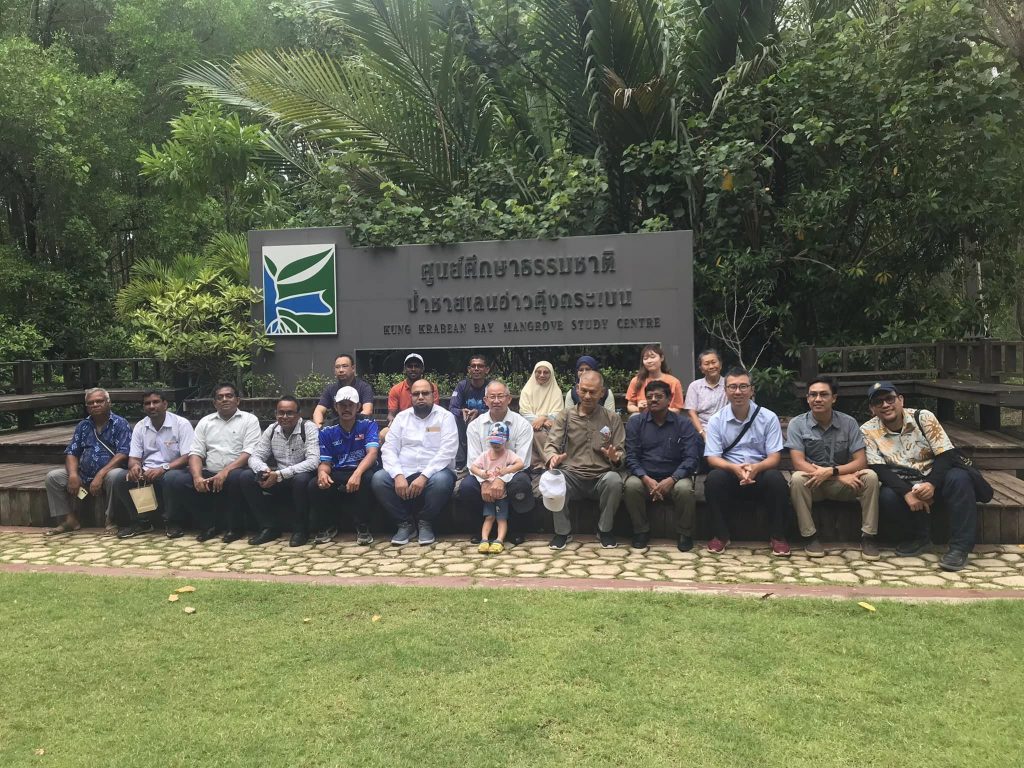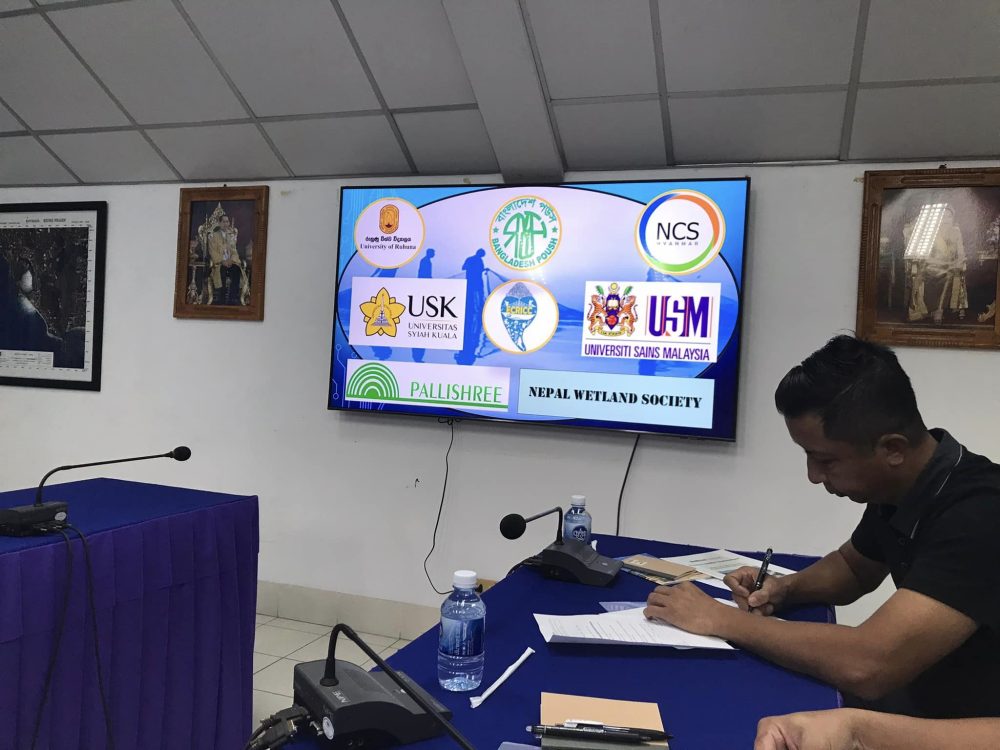
Chanthaburi Province, Thailand – A group of 24 participants from around the globe embarked on an eye-opening journey of environmental discovery and sustainable practices during a study visit and onsite training on Crab Banks and Ecotourism in Thailand. Taking place from September 4th to 8th, 2023, this educational initiative offered a unique opportunity to explore the enchanting world of ecotourism and the vital role of Crab Banks in preserving coastal ecosystems.
The diverse group of participants hailed from various countries, including Myanmar, Sri Lanka, India, Bangladesh, Nepal, Indonesia, Malaysia, Japan, and, of course, Thailand, making it a truly international affair. Among the distinguished participants was Dr. Alfi Rahman, representing the Research Center for Social and Cultural Studies (PRISB) at Universitas Syiah Kuala, adding his extensive expertise to the group.
Together, they delved into the heart of Chanthaburi Province, uncovering the intricate web of ecological balance and sustainability.
The Royal Project at the Kung Krabaen Royal Development Center served as a focal point for the participants. Here, they had the privilege of learning from Mr. Thakorn Khakaikitthawat, a knowledgeable guide who not only shared his wisdom but also showcased the art of sea farming techniques in Kungkrebaen Bay. Participants received hands-on training on the installation of crab banks and the safe extraction of eggs from berried crabs, gaining a profound understanding of the delicate balance between conservation and sustainable resource management.
The visit to a mangrove forest conservation site left an indelible mark on the attendees. The flourishing mangroves stood as a testament to the successful conservation efforts. Mr. Thakorn’s words highlighted the dramatic transformation of the area, once marred by the decline of mangroves due to shrimp farms, now vibrant and green, thanks to the restoration work carried out.

The learning journey extended to Ban Sueng Lang, where participants gained insights into the invaluable contributions of local communities in safeguarding coastal environments. The Bang Kaho Sam Pao Kwuam area offered a unique perspective on the innovative methods employed by the locals to combat the challenges posed by the monsoon season’s fierce winds. The practice of placing mangrove seedlings inside bamboo before planting them on the beach left a lasting impression, illustrating the harmonious blend of traditional knowledge and modern techniques in promoting ecological resilience.
The successful execution of this educational initiative was made possible by The Ramsar Center Japan (RCJ), a testament to their commitment to environmental education and global learning. The event fostered meaningful interactions among participants, encouraging the exchange of knowledge and ideas to further advance the cause of sustainability and environmental conservation.
The transformative experience of exploring ecotourism and Crab Banks in Thailand has not only enriched the lives of the participants but has also ignited a shared passion for safeguarding our precious coastal ecosystems.

Recent Comments